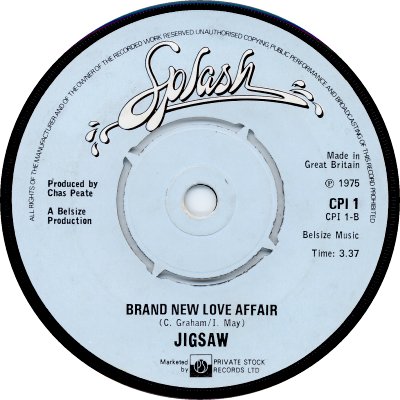
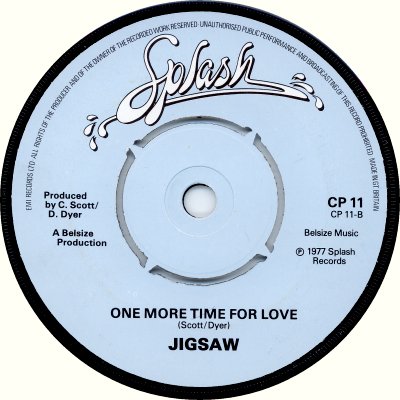
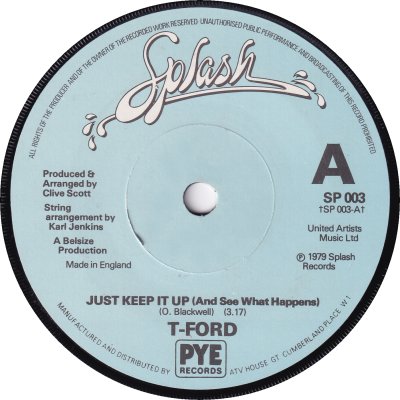
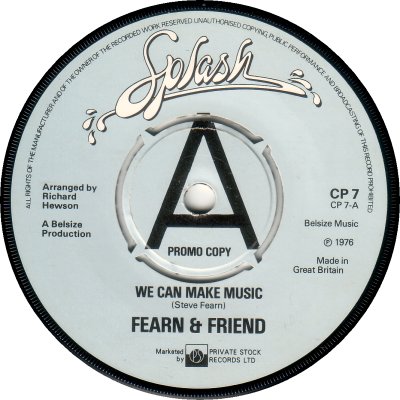
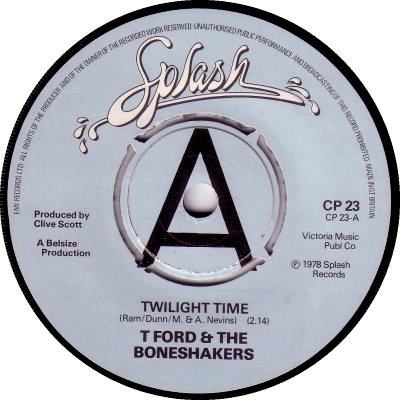
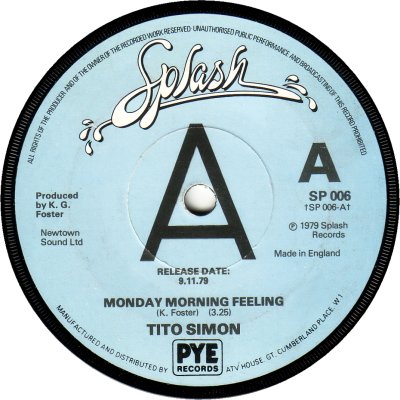
The record label of publishing and production company Belsize Music, which was owned by Chas Peate; thus the 'CP' in the prefixes which its records used initially. For the first half of the '70s Belsize placed its productions with other labels: it leased a Tom Loach album, 'The Magic Swing', and four singles by Jigsaw, whom Peate managed, to Philips in 1970-71. 'Billboard' of the 25th of September 1971 said that composer / producer Lally Stott had placed three singles with the company with the intention of having them licensed onwards; at least one of those singles, 'Sun Was In Your Eyes' b/w 'Just A Lonely Man' by Peacock, was taken up by Gulf & Western and released on the Famous label (q.v.) as FAM-107 (10/71). Then 'Billboard' of the 22nd of June 1972 reported that German label BASF (q.v.), which was setting up a UK record operation, had signed a non-exclusive production deal with Belsize; in the event the label had something of a stuttering start here but all of its first three singles were Belsize productions. When BASF came to a temporary halt two of those singles were leased elsewhere: Jigsaw's 'That's What It's All About' b/w 'And I Like You' to UK Records (UK-45; 7/73) and 'Doggie' b/w 'Like We Still Do' by Candlewick Green to Decca (FR-13379; 2/73). Subsequently Decca licensed four other Candlewick Green singles, and enjoyed a hit with 'Who Do You Think You Are?' b/w 'Fingers In Your Ears' (FR-13480; 12/73) which just failed to break into the Top 20. BASF got going again in early 1974, and Belsize provided them with four more singles by Jigsaw and its band members.
In 1975 Splash launched its own label. 'Music Week' of the 20th of September broke the news that its releases were to be handled by Larry Uttal's Private Stock company, under a three-year deal which called for Splash to have a minimum of three acts on its roster and to provide at least nine singles and three albums each year. Splash got off to a flying start when its first single saw Jigsaw enjoying a hit at last: 'Sky High' b/w 'Brand New Love Affair' (CPI-1; 10/75), reached No.9 in the Singles Charts. Sadly none of its subsequent releases managed to match that performance - another Jigsaw single, 'If I Have To Go Away' b/w ' One More Time For Love' (CP-11; 6/77), got into the Top 40, but that was the lot. Despite the lack of Chart success the company must have done well enough, for it continued to release new material until 1988. Its '70s repertoire consisted mainly of MOR Pop and Disco material, though T Ford & The Boneshakers added some Rock 'n' Roll revival. Splash's only other mention in 'MW' of the 1970s came in the issue of the 4th of August 1979, which said that it had signed a licensing deal with Pye - Private Stock had effectively wound down its UK operation towards the end of 1978, and Splash seems to have gone into limbo at that time.
Splash stuck with the same label design throughout the '70s and into the '80s, with minor differences here and there. The Private Stock logo appeared at the six o'clock position (1) for the first ten singles; it disappeared from CP-11 (June 1977) onwards, which suggests that there was a change in the agreement between the companies around that time (2). The move to Pye saw a reference to that company added at 6 o'clock (3). Promo copies were generally marked with a large central black 'A', though in the case of CP-2 the 'A' was a very small one for some reason. Promos which featured the Private Stock logo also had either 'Promo Copy' (4) or the release date on them; there was no extra text on the rest of the CP promos (5), but the release dates returned when the move to Pye took place (6).
The first Splash single was numbered CPI-1; for the second and subsequent issues the 'I' was dropped and the prefix became plain 'CP'. After the move to Pye the numerical series was changed to SP-000. Manufacture and distribution during the Private Stock years was by EMI, as it was for Private Stock's own records. When Pye licensed Splash it naturally took over those functions. The discography below only covers the 1970s.
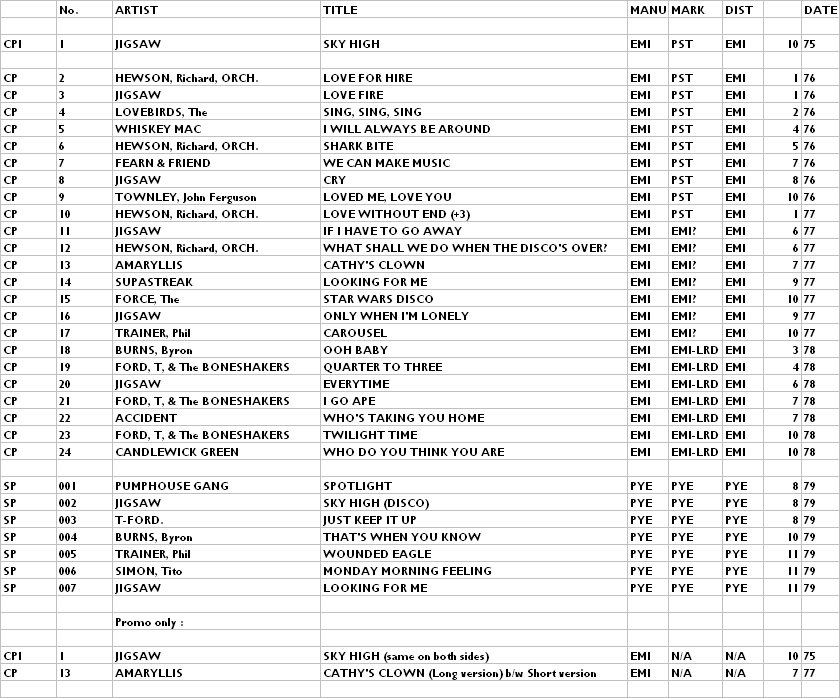


Copyright 2006 Robert Lyons.

